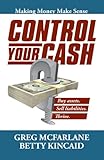Movie director.
Teacher is near the bottom. At the bottom, for the 6000th year in a row? Mother.
Meet the wage-earning world’s most crucial person, James Cameron. What he does means vastly more than what any 5th-grade home room warden ever has done or ever will do. According to Variety, Cameron made $257 million last year. That dwarfs the highest salary earned by anyone on Wall Street (Hugh “Skip” McGee III*, who drew $25 million for presiding over Lehman’s destruction), the highest salary earned by an athlete (Tiger Woods, $91 million), and the highest salary earned by an athlete who doesn’t have to fork over half of it under the biggest divorce settlement in the history of the universe (Phil Mickelson, $66 million. Mickelson demonstrates the rule, as always – encase your baby’s right hand in plaster until he learns how to punch, twirl a drumstick, field a grounder, strum a guitar, throw a football, shoot a free throw, sign a death warrant, masturbate and use scissors with the left.)
Cameron produced Avatar, which your blogger would rather visit the dentist than sit through, but that’s not the point. Tens of millions of others not only have the opposite opinion, but are willing to put money behind it. Cameron has the ability to turn a substantial profit given even gigantic expenses (Avatar apparently cost $230 million to make, creating a hole that perhaps no one else had the acumen to dig out of.) Is that more important than teaching a child to spell and calculate square roots, assuming the teacher knows how to do both herself?
Yes.
It doesn’t matter that movies are mindless entertainment while literacy and numeracy are vital skills. If your profession entails doing what tens of millions of others can do – keeping juveniles occupied for 6 hours a day while their parents appreciate the break from the misery that is child-rearing – you’re never going to get rich. You’re 99.9% certain never to get rich on salary regardless of what you do for a living, but that’s neither here nor there.
If you’re a teacher, you’re welcome to complain about the injustice of the salary structure. You can even whine to your union, and buy pencils and school supplies with your own money if you like. It’s not quite the equivalent of nailing Yourself to a crucifix and dying a painful death for mankind’s sins, but it’s close.
Hopefully we don’t need to state the irrelevant, but here it is anyway: as a person, James Cameron sounds like a nightmare. His next wife will be #6. He’s not satisfied being an atheist, but has to let everyone who’s listening know that he’s evolved to the point where what’s unknowable to him is thus unknowable to the universe. He’s one of the self-righteously indignant who expressed ceremonial displeasure with the presidency of George W. Bush, which in Cameron’s case entailed rescinding his application for United States citizenship. Why he didn’t apply for naturalization under the Nixon, Ford, Carter, Reagan, Bush Sr., Clinton or Obama administrations, you’d have to ask Cameron. Despite living in Canada for his first 17 years and spending the subsequent 39 in the United States, Cameron believes that any nominal national fealty he should feel should be toward a nation that he rejected – rather than the only one in which he could earn $257 million a year.
Good luck reaching him to bring this to his attention, given that he’s too busy working. And employing dozens, many of them at extremely comfortable salaries of their own. Those dozens, by the way, need to spend that money somewhere. And do. There are far more blue-collar people engaged in the occupation of building yachts than there are white-collar yacht owners. Cameron’s latest film grossed close to $3 billion worldwide. Few investments that large offer that great a return, and few investments that offer that great a return are that large. Cameron’s talents enable 20th Century Fox to turn a profit, expand its operations and hire more people. Shareholders of the studio’s parent company, News Corporation, watch their portfolios increase in value. News Corp’s rising stock price strengthens the values of the 401(k)s and IRAs that it’s a constituent of, meaning greater wealth for the myriad non-rich people who therefore each own a modest part of the company.
This isn’t just a curious story. It applies to the real world. Your world. How? If purely psychological rewards are what motivate you professionally, then fine. But if you think your life would be easier and enable you to enjoy more freedom if you had more money, it’s your obligation to do what you can to create lasting value.
*We didn’t make that up. That’s a real name, all of it. The ridiculous “Hugh”, the comically on-the-nose “”Skip””, and the Roman numeral qualifier, which is helpful for letting the country club staff distinguish Trey from Skip Sr., Skip Jr., and Skip IV.








